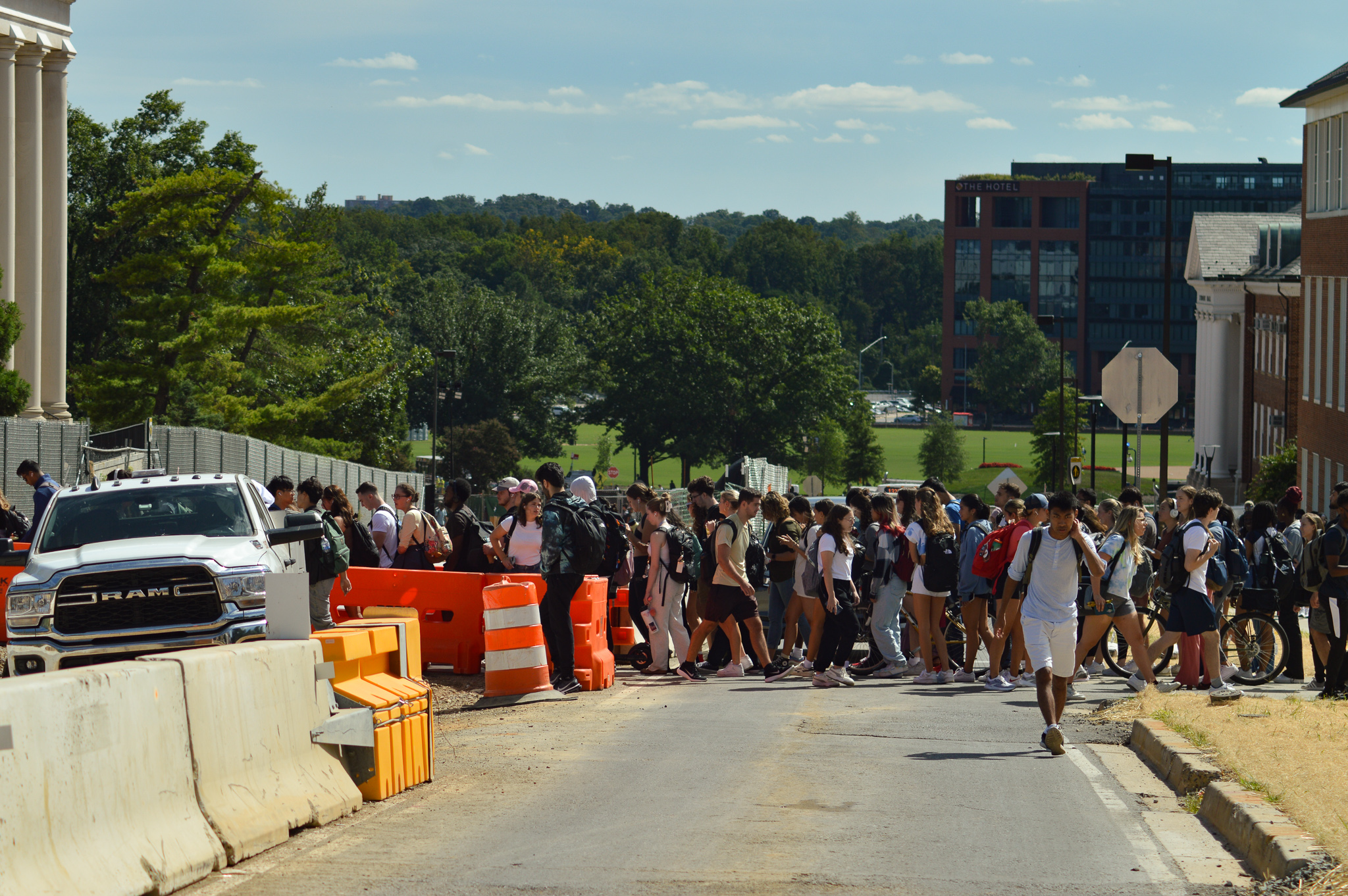Views expressed in opinion columns are the author’s own.
Roughly 60 percent of my conversations this week have been complaints about construction, detours and random demonstrations. As I’ve attempted to maneuver through my first week on campus, Google Maps has been my crutch to get everywhere. Still, I got lost or thrown off route nearly every day by a strip of tarp or orange warning sign.
This is the University of Maryland, Construction Park. Construction is who we are and maybe who we’ll always be, but the current state of campus and the surrounding area is ridiculous.
Making jokes about our unfortunate situation shouldn’t be our only option to deal with this mess. If city officials and development companies are going to put us in this position, the pressure needs to be placed back on them to alleviate the burden of their actions.
Transparency is critical to have from the officials behind these projects. Before each development that will run through busy roads or paths begins, the public should be able to view a rough outline showing the area of construction, possible blockages and reroutes. The best way to ensure this information is available and accessible is with an app.
The app would work similar to the already established Waze app, which assists drivers with directions and real-time closure information. But instead of something car-centric, this app would prioritize non-driving populations such as walkers, bikers and scooter riders. The current format of Waze allows drivers to report any instances on the road that could delay or impede a person’s route like traffic, police, detours or bad road conditions. However, Waze isn’t as helpful for non-drivers.
In a new app, the public officials and construction managers who implement blockages and detours would be held responsible for correctly identifying them within a new, Waze-like app. This would improve non-car commutes that construction has impacted. With this app, College Park residents can place the burden of these continuous disturbances back onto those who approved them. If a construction project needs to block a sidewalk students use to get to class, those in charge of it should tell us in advance. It should not be our responsibility to blindly roam and maneuver around the excessive areas of road work on campus.
To ensure this solution works, someone needs to enforce frequent updates to the app. This is where the public officials in our community could step in to punish developers with fines for failing to accurately and quickly report blockages and detours. Once disruptions are reported in real time, residents can share their ideal routes and shortcuts, just like in Waze.
While improvements to an area are necessary, construction has the potential to spark gentrification and displace residents. College towns are notorious for displacing local residents in pursuit of bigger campuses and more student housing.
It’s not enough to simply improve travel in the area. The community experience in College Park needs to be prioritized, as well.
The app can help promote existing local businesses after new ones have opened. I’m excited for the new Little Blue Menu from Chick-fil-A to arrive in College Park, but let’s not forget about the older, smaller places in our community after the shiny new ones are finished.
In the app, results and suggestions for mom-and-pop shops should populate before larger chains or newer businesses to further potential community connection. In exchange for being among priority searches, local businesses could offer discounts to users who frequently provide routes on the app. Collaboration with members of the community is crucial in times where everything around us seems to be changing.
This university has a bounty of potential developers to turn this product into a legitimate, functioning app. The computer science department has thousands of students who could use this project as a means to produce their first large-scale app. As the university boasts constantly, we have one of the largest computer science programs in the nation. Surely there are some techies reading who would be eager to engage with a project like this.
Yes, it’s true that construction is a necessary part of life, and that development can lead to improvement and increased prosperity. But why should those potential benefits come at the cost of our current quality of life? If we must have construction and its resulting disruption, the people that have created these situations ought to do the work to minimize their large disturbances.
The responsibility rests in the hands of university officials, local leaders and developers alone, but including residents and students will develop both College Park’s community bonds and physical spaces.
Lynelle Essilfie is a freshman public policy major. She can be reached at lessifi@terpmail.umd.edu.



